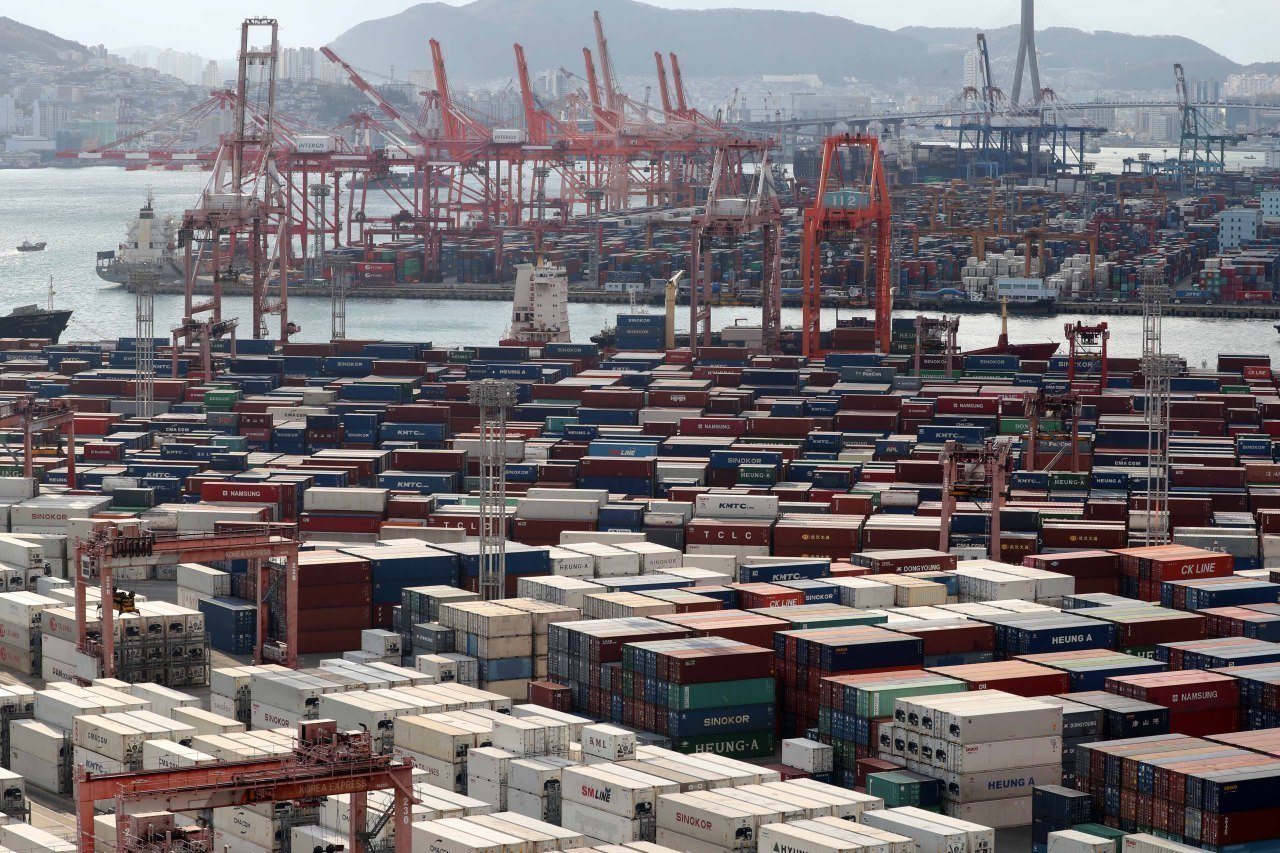 |
(Yonhap) |
South Korea posted a current account surplus for the second straight month in June, but its amount sharply contracted from a year earlier amid mounting import costs emanating from high energy and commodity prices, central bank data showed Friday.
The country's current account surplus stood at $5.61 billion in June, accelerating from the previous month's surplus of $3.86 billion, according to the preliminary data from the Bank of Korea (BOK).
It marked the second straight month of a surplus following April when South Korea registered a deficit of $80 million -- the first shortfall since April 2020 -- due in part to such one-off factors as expanded overseas dividend payments.
In the January-June period, the country's cumulative current account surplus came to $24.78 billion, sharply down from $41.76 billion a year earlier, though it topped the BOK's first-half projection of $21 billion.
The June surplus was much smaller than the same month a year earlier when the country logged a surplus of $8.83 billion, the data showed.
The on-year decline stemmed mostly from rising import bills caused by high prices of energy and key commodities amid global supply snarls that have been exasperated by the ongoing war in Ukraine.
In particular, imports of crude oil and coal jumped 53.1 percent and 189 percent, respectively, in June from a year earlier. Imports of such capital goods as semiconductors and related equipment also rose 37 percent and 6.8 percent, respectively, over the cited period.
Exports, meanwhile, came to $59.53 billion, slightly smaller than the previous month's $61.7 billion. The outbound shipments, however, were larger than $54.59 billion tallied a year earlier.
Of them, exports to the United States and the Middle East expanded 12.2 percent and 8.6 percent on-year, respectively, in June, but those bound for China shrank 0.8 percent over the same period apparently affected by coronavirus-related lockdowns and slowing growth.
As a result, the goods balance that tracks imports and exports registered a surplus of $3.59 billion in June, which more than halved from a surplus of $7.55 billion a year earlier.
Hwang Sang-pil, head of the BOK's economic statistics bureau, said that exports will remain robust going forward but concerns over a global economic recession and slowing Chinese economy could weigh on the country's overseas sales.
"Slowing economic growth in major countries and volatility in global raw material prices are among possible key risks," he said. "It is also necessary to keep tabs on global supply disruptions of semiconductors."
He worried that the global recession could hurt its exports and negatively affect its current account balance but noted that how fast the oil prices decline will determine whether the country achieves its surplus projection for this year.
In May, the BOK forecast the country's annual current account surplus could reach around $50 billion this year, which was sharply smaller than a surplus of $70 billion predicted three months earlier. The central bank will provide updated outlooks later this month.
The service account, which includes outlays by South Koreans on overseas trips and transport earnings, posted a deficit of $490 million.
This represented the second straight month of a shortfall amid increasing overseas travel after the country eased anti-pandemic curbs. The deficit was still smaller than a deficit of $1.02 billion the previous year thanks in part to expanded earnings from high freight rates.
The primary income account, which tracks wages of foreign workers and dividend payments overseas, logged a surplus of $2.77 billion in the month, up from a surplus of $2.56 billion, the data showed. (Yonhap)







